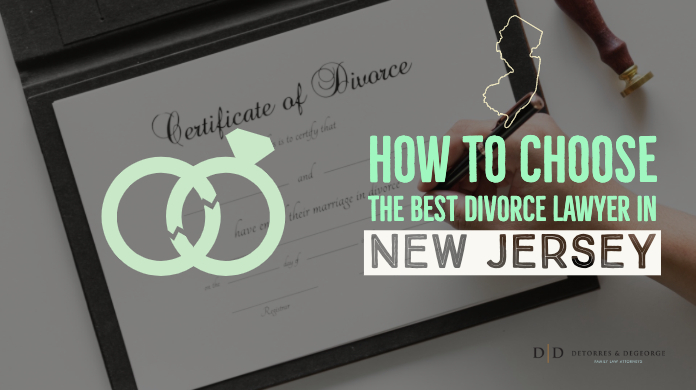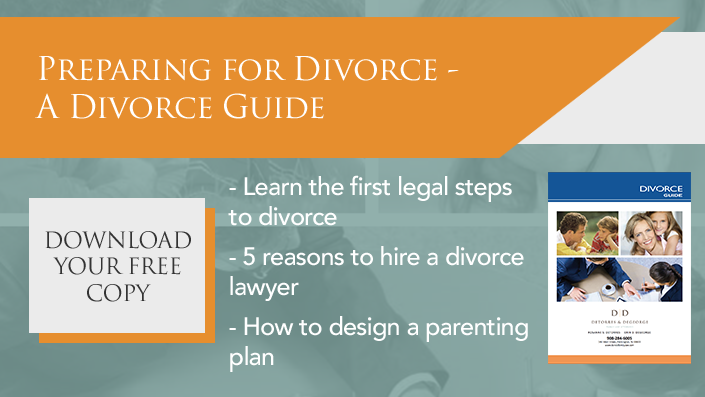 Choosing an attorney to represent you in your divorce is an immensely important process. You will be working closely with this individual during a very emotional, very difficult part of your life. You want to be sure that you are comfortable with your divorce attorney, but also that they will represent you to the best of their abilities.
Choosing an attorney to represent you in your divorce is an immensely important process. You will be working closely with this individual during a very emotional, very difficult part of your life. You want to be sure that you are comfortable with your divorce attorney, but also that they will represent you to the best of their abilities.
Large versus small family law firms
Many people’s assumptions are based on the misconception that a large firm is comprised solely of the stereotypical TV-style lawyers. In some cases, this may be true; and if that’s what you are most comfortable with, a large firm may be for you. However, some of the best attorneys do not work at large firms, but instead decide to surround themselves with a smaller group of excellent attorneys. There’s often a notable difference in the dynamic at a large versus small firm. You may want to schedule consultations with attorneys at both large and small family law firms in order to determine what your preference may be.
Do your research
Divorce has become a very common occurrence in recent years. It is more than likely that if you ask your friends and family members, at least one will have gone through a divorce themselves, or they will at least know someone else who did. As such, those who have gone through a divorce are a great resource to find the best divorce lawyers. It’s common that people who come in for a consultation know one of our prior clients and were referred to us by them. Sometimes we even find out that we were referred by the spouse of a former client. Outside of personal recommendations, there are several other resources you can utilize to find and vet the best attorneys, including via the online presence of a firm (their website, social media accounts, etc.), or through the inclusion of a specific attorney on a respected industry list, such as Super Lawyers, which includes attorneys who were nominated by fellow attorneys.
Meet with More than One Attorney
Your personal connection with your attorney is important. Many people have consultations with more than one attorney before making a decision about representation. As you go through the consultation process, you’ll want to keep in mind that some attorneys, such as those who focus their practice on collaborative divorce, may not want to take a case that is likely to go to litigation. So if you have an acrimonious relationship with your spouse and believe litigation is an inevitability, you will want to know the preferences of each attorney you meet with so that you do not make an unwise choice and then have to change attorneys mid-case due to the need for litigation.
Questions To Ask When Searching For A Family Law Attorney
A divorce is a major decision that comes with a significant life change. Understandably, you’ll want to choose the best family law attorney to represent you. It’s important that you feel comfortable with your attorney and believe that they have your best interests at heart. It may be difficult to develop a feel for that in the initial consultation, so here are some questions that you can ask a family law attorney when you are at that consultation.
1. What percentage of your cases are in my county?
Family law attorneys in New Jersey are licensed to practice in the entire state. However, many tend to limit their practice to a few counties located in close proximity to their office for practical reasons, like keeping their clients’ travel costs down! While attorneys can practice in all 21 New Jersey counties, you may want to know how often they appear in your particular county. There is a certain level of comfort and familiarity that comes with practicing in the same counties continuously. Your attorney is more likely to be familiar with the judges and the way those judges make decisions and may be able to give you a better idea about what the outcome may be from a court appearance or motion in your matter. Also, some of the rules vary from county to county. For example, Somerset, Hunterdon, and Warren counties permit you to do a “divorce on the papers,” which means that you submit a sworn statement regarding your consent and understanding of your Marital Settlement Agreement rather than appearing in person. Essex County, however, will not allow this, and all parties getting divorced must appear in front of the judge. Having an attorney that is familiar with your particular county may make for a smoother process.
2. Will I get copies of all paperwork in my case?
This is your life, and you of course want to be aware of everything that is happening in your case. You should receive a copy of all of the paperwork in your case. Our practice is to send things by email so that our clients have an electronic copy. In the event that a client would like to have a paper copy as well, we will certainly provide that.
3. What is the average fee for a case you handle from start to finish?
The answer to this question varies from case to case. The cost of a divorce is largely dependent upon the cooperation of the other party and how well the individuals who are divorcing are able to get along and cooperate. However, an attorney may be able to give you an estimate based on what you tell them at the consultation.
4. What issues do you anticipate occurring in my case?
One of the biggest fears about a divorce is that there are unknowns. Many times people come to a consultation and say that custody and parenting time is not an issue in their case, only to be blindsided by the other party seeking substantial parenting time. It is a good idea to ask your attorney this question so that they can prepare you for possibilities. For example, if your spouse owns a business, the attorney might tell you that you will need to hire an expert to value the business. Or if custody does become an issue in your matter, a family law attorney can discuss the process of going through a custody evaluation. Having all of the information ahead of time may alleviate some of your concerns about the divorce process.
5. Who will attend court appearances and conferences with me?
Many offices, DeTorres & DeGeorge included, take a team approach to cases. This means that it is not simply the attorney you first meet with who is working on your case, but may also include support staff, and occasionally the other attorneys in the office. You should have a clear understanding at the outset, however, about who will primarily manage your case. You will certainly want to know who will be attending court with you or who will be handling your trial in the event that one is necessary.
If you’re considering a divorce and would like more information, please contact the attorneys at DeTorres & DeGeorge for a consultation.


 START LIVE CHAT
START LIVE CHAT










